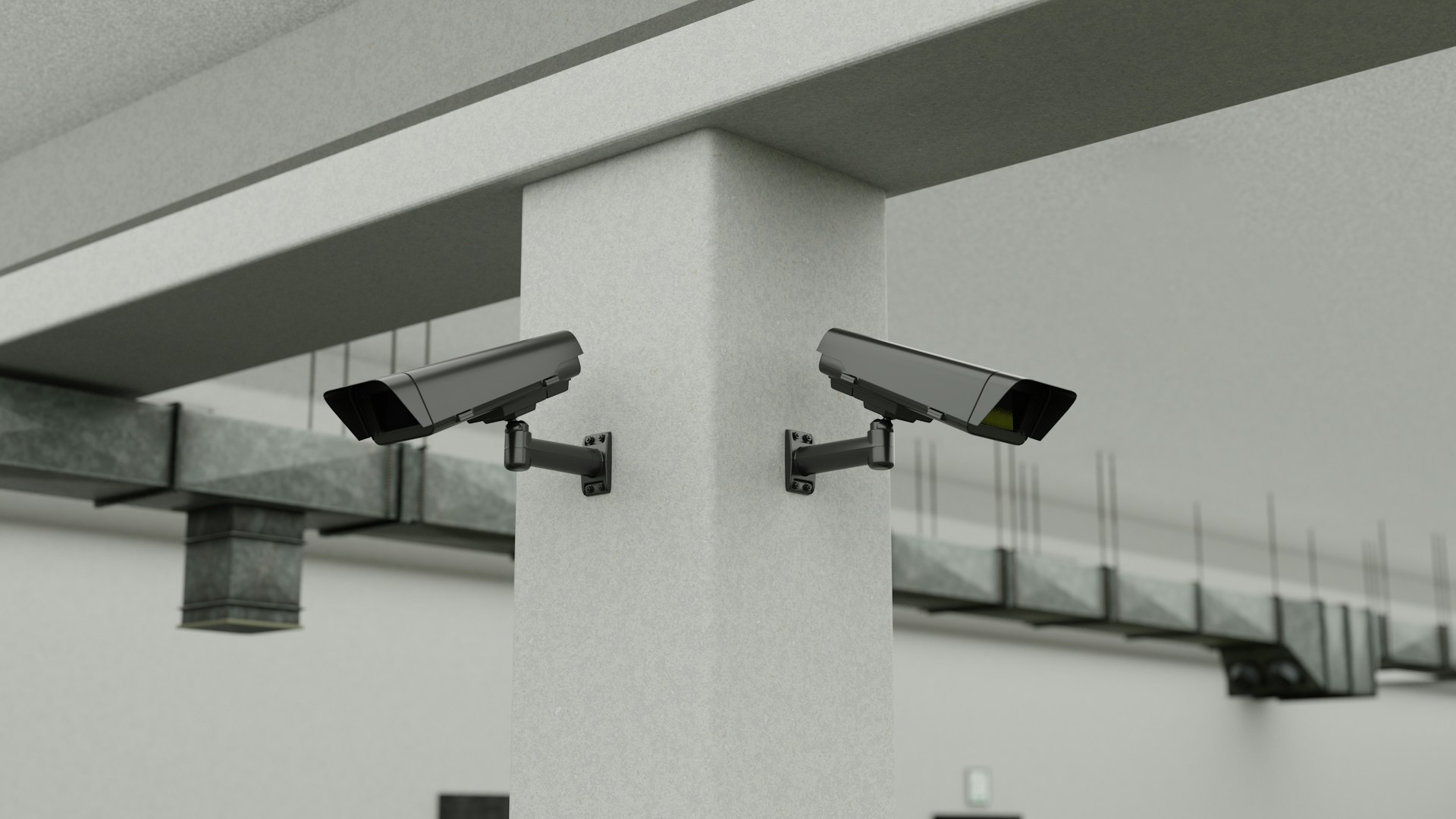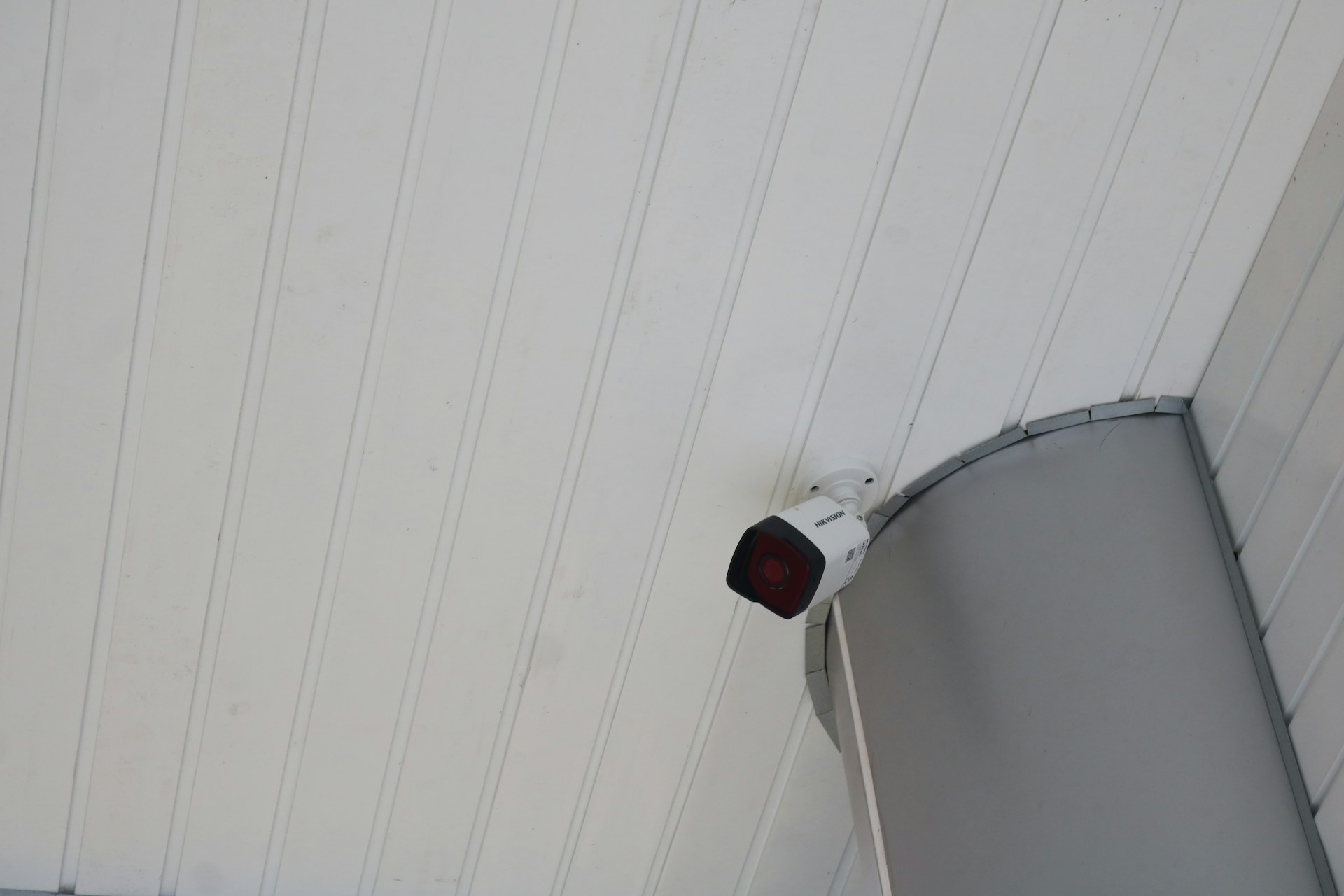Understanding video surveillance laws in residential areas is crucial for homeowners. In many cases, installing security cameras in your home is legal, but specific laws vary significantly by state and even local jurisdictions. You may wonder about your rights and the privacy of others when monitoring your property.
As a resident of the greater Houston area, it’s important to navigate these regulations to protect yourself and your neighbors. Legal considerations include aspects such as reasonable expectation of privacy and consent requirements, which can influence where and how you set up cameras. Familiarizing yourself with these laws not only keeps you compliant but also enhances the effectiveness of your security measures.
Knowing the legal landscape surrounding surveillance in your neighborhood can help you make informed decisions about your security. By understanding the boundaries set by local regulations, you can effectively deter crime while respecting the privacy rights of those around you.
Understanding Video Surveillance Laws in Residential Areas
When using video surveillance in residential settings, it's crucial to grasp the legal frameworks governing these technologies. Awareness of key principles, as well as variations between federal and state regulations, will help ensure compliance. Additionally, it's essential to distinguish between video and audio surveillance laws to safeguard privacy rights.
Key Principles of Video Surveillance
Video surveillance laws are predicated on the balance between security and privacy rights. You must adhere to guidelines that dictate where and how cameras can be positioned. For example, placing cameras in common areas or towards private property without consent can lead to legal complications.
Important considerations include:
- Notice: Inform residents about the presence of cameras.
- Placement: Avoid positioning cameras where they can capture private activities.
- Storage: Define a clear policy on how long footage is retained and who can access it.
Understanding these principles is essential to avoid conflicts and uphold the privacy of individuals within shared spaces.
Federal vs. State Regulatory Authority
When dealing with video surveillance laws, both federal and state regulations come into play. The federal government sets broad privacy protections, while state laws may provide more specific guidelines that can vary significantly.
In the Greater Houston area, it's essential to familiarize yourself with Texas state laws regarding surveillance. For instance, Texas law mandates that you do not record individuals without their consent in certain situations. State laws may also require maintaining transparency about surveillance methods within residential communities.
Key aspects include:
- Federal laws provide baseline protections.
- State laws can impose additional requirements.
- Always check local ordinances for specific guidelines.
Differentiating Video and Audio Surveillance
Video surveillance often presents fewer legal hurdles than audio recording. You should be aware that recording audio without consent is generally subject to stricter regulations. This distinction is vital for maintaining compliance with privacy laws.
For video surveillance, the laws generally focus on where cameras are placed and how footage is used. You can typically record in public areas but must ensure that your cameras do not invade the privacy of individuals in their homes or private property.
Take note of these distinctions:
- Video recording: Usually legal in public areas; consent might still be required in private spaces.
- Audio recording: May require consent from all parties involved, depending on state laws.
Understanding these differences plays a crucial role in ensuring you respect the privacy rights of your neighbors and comply with applicable laws.
Expectation of Privacy and Legal Restrictions
In residential areas, understanding the legal framework around video surveillance is crucial. Your rights regarding privacy significantly shape where and how you can place security cameras. This includes considerations tied to reasonable expectations of privacy, areas where surveillance is prohibited, and requirements for notifying those being recorded.
Reasonable Expectation of Privacy in Homes
You have a reasonable expectation of privacy within your home. This legal principle is reinforced by the Fourth Amendment, which protects individuals from unwarranted surveillance in spaces where privacy is expected, such as bedrooms and bathrooms. The law generally deems it an invasion of privacy to use hidden cameras in these areas.
This expectation significantly impacts how surveillance is conducted. If a camera records areas where a person has a reasonable expectation of privacy, it may be viewed as unlawful, exposing you to potential legal action. Therefore, place cameras in common areas or entrances rather than private spaces to maintain compliance.
Areas Where Surveillance Is Prohibited
Certain areas are strictly off-limits for video surveillance. For example, monitoring private spaces such as bathrooms, changing rooms, or any area where individuals typically expect privacy can lead to severe legal consequences. Surveillance in these areas is often classified as an invasion of privacy.
Additionally, local laws may impose restrictions on recording in shared living environments. While common areas in residential complexes can be monitored, avoid pointing cameras toward private domains, like neighbors’ yards. Respecting these boundaries helps ensure you remain compliant with privacy laws.
Notice and Disclosure Requirements
In many states, you must inform individuals if they are being recorded. This notice can take various forms, including signage or verbal communication. Transparency alleviates privacy concerns and aligns with legal requirements regarding surveillance.
For instance, placing a sign indicating that video surveillance is in use can be a simple yet effective method to adhere to legal standards. In some cases, specific disclosures may be legally necessary, particularly in workplaces or multi-family homes. Always verify local laws to stay informed about your obligations regarding notice and disclosure in your area.
Consent Laws and Audio Recording in Surveillance
Understanding consent laws regarding audio recording in surveillance is crucial for compliance and avoiding legal issues. Different states have varying laws that dictate whether one or all parties must consent to audio recording. Familiarizing yourself with these regulations will help you navigate the complexities of audio surveillance.
One-Party Consent Laws
In one-party consent states, only one participant in a conversation needs to consent to the recording. This means if you are part of the conversation, you can record it without informing the other party. This approach is generally seen in states like Texas. Under the Electronic Communications Privacy Act (ECPA), such laws regulate audio recordings to protect privacy rights while allowing necessary surveillance.
In a residential setting, if you are recording conversations in your home or yard and you are a participant, you typically do not need to inform others. Nonetheless, nuances can exist regarding expectations of privacy, so it is wise to review local laws.
All-Party Consent Laws
All-party consent laws require that every person involved in a conversation agrees to the recording. States such as California and Florida enforce this standard, making any unauthorized recording potentially illegal. Violating these laws can lead to criminal charges and civil liabilities.
In residential areas, this means installing audio surveillance may present challenges. If you plan to record conversations, you must obtain explicit consent from all parties involved. This requirement emphasizes the importance of communicating clearly with guests and household members regarding any surveillance measures in place.
Audio Recording Laws and Wiretapping Statutes
Audio recording laws extend beyond mere consent to include wiretapping statutes, which are designed to prevent unauthorized interception of communications. The ECPA outlines guidelines that differentiate between permissible and unlawful audio recordings.
In contexts involving surveillance cameras with audio capability, it's essential to ensure compliance with both state and federal laws. In general, wiretapping can occur if recordings are made without consent, leading to serious legal implications. Always confirm your compliance with the relevant wiretapping regulations before implementing audio recording.
Mixed Consent Jurisdictions
Some states operate under mixed consent laws, where the rules may change based on specific circumstances. For instance, certain situations may allow for one-party consent while others may necessitate all-party consent. This complexity makes it important to examine the particular legal landscape in your state.
In mixed jurisdictions, pay close attention to local statutes and consult legal resources to ensure compliance. The risks associated with misunderstandings of consent laws can lead to potential legal repercussions and fines, emphasizing the need for clear guidance in surveillance practices.
State-Specific Video Surveillance Laws for Homeowners
Homeowners must navigate various video surveillance laws that differ by state. Understanding these regulations is crucial for ensuring compliance and protecting your privacy rights while managing surveillance on your property.
Overview of Video Surveillance Laws by State
Video surveillance laws vary significantly across the United States. Key aspects include whether you are in a one-party consent state or a two-party consent state.
- One-Party Consent: In states like Texas, only one person needs to consent to the recording. If you’re recording in your own home, you generally comply with this law.
- Two-Party Consent: In states such as California, all parties involved in a conversation must consent to be recorded. This necessitates caution if your surveillance captures audio.
Additionally, surveillance must respect reasonable expectations of privacy, particularly in sensitive areas like bathrooms or bedrooms.
Examples from Key States
- Texas: In Texas, you can record video in your home without consent from others, but audio recordings require at least one party’s agreement. This makes it easier to use home security cameras, provided you network them correctly.
- California: California's strict two-party consent laws mean that if your residential cameras capture audio, you must notify individuals if they are being recorded. Failure to comply can result in legal repercussions.
- New York: This state has similar regulations to California, with specific focus on privacy in residential spaces. Homeowners should avoid placing cameras in locations where individuals expect privacy.
Changing Laws and Legal Updates
Laws surrounding video surveillance are continually evolving. States are reassessing their regulations to address new technologies and privacy concerns.
For instance, some regions are introducing legislation to define acceptable uses for video footage, especially in residential settings.
Keep an eye on local news and government announcements for updates that may affect your surveillance practices. It's advisable to consult a legal professional if you're unsure about current laws in your state, particularly as they can change regularly.
Informed homeowners can make better decisions about how they monitor their property while respecting the privacy rights of others.
Security Camera Placement and Practical Considerations
When installing security cameras in residential areas, it’s essential to understand the legalities and best practices surrounding camera placement. Addressing both private and common spaces helps ensure compliance with laws and respects privacy rights. Here are key factors to consider for effective camera placement.
Permissible Security Camera Placement
You can install security cameras in various locations, but certain rules apply. Ensure your cameras focus on your property and avoid capturing footage of neighboring houses or other private areas. Always respect the expectation of privacy that individuals may have in their homes.
It's advisable to position cameras at entry points such as doors and windows. These high-traffic areas can serve as both deterrents to potential intruders and valuable sources of evidence should a crime occur.
Always check local laws, as specific regulations may dictate how and where cameras can be placed.
Surveillance in Common Areas vs. Private Spaces
Understanding the differences between common areas and private spaces is crucial. In shared spaces like hallways or courtyards, you may be allowed to use security cameras, provided they don’t violate the privacy of residents.
However, placing cameras in private spaces, such as inside an individual's home or residence, could lead to legal repercussions unless consent is obtained. Always obtain permission from residents if you plan to monitor shared facilities.
It's essential that your surveillance practices do not infringe on personal space to maintain a good relationship with neighbors while ensuring safety.
Regulations for Outdoor Security Cameras
When considering outdoor security cameras, be aware that different regulations may apply. Many cities, including those in the greater Houston area, have laws requiring homeowners to register their surveillance equipment.
Outdoor cameras should ideally cover only your property and public areas where a reasonable expectation of privacy is virtually nonexistent. This includes monitoring driveways or backyards, but avoid capturing footage of the street unless absolutely necessary.
Before installation, research local laws regarding outdoor security camera usage. This will help you avoid issues related to privacy violations or unauthorized data collection.
Recommended Disclosure Practices
To maintain transparency and respect privacy, consider implementing clear signage regarding surveillance. Placing visible surveillance signs can inform guests that they are under video surveillance, which is not only a best practice but often a legal requirement.
You should also ensure that any employees or visitors are aware of camera placements in common areas. This promotes a culture of trust while complying with regulations.
In addition, informing neighbors of your surveillance intentions can foster goodwill and help avoid misunderstandings. Open communication about your security measures is key to being a responsible homeowner.
Penalties and Legal Consequences of Illegal Surveillance
Understanding the penalties associated with illegal surveillance is crucial for homeowners. Engaging in unauthorized monitoring can lead to civil liabilities, criminal charges, and potential legal actions that may substantially impact your life.
Civil Liability for Invasion of Privacy
If you engage in illegal surveillance, you risk civil liability for invasion of privacy. This can arise when individuals monitor or record another person without their consent in areas where they have a reasonable expectation of privacy, such as their home or yard.
Victims may file civil lawsuits seeking damages for emotional distress, humiliation, and financial losses. Fines can be significant, with some jurisdictions imposing penalties reaching thousands of dollars. Additionally, courts may issue injunctions to prevent further violations.
Being aware of your responsibilities regarding the privacy of others helps minimize these risks and protects you from costly legal battles.
Potential Criminal Charges and Prosecution
Engaging in illegal surveillance can result in criminal charges, depending on the nature of the offense and local laws. Crimes such as unlawful wiretapping or unauthorized video recording can carry severe penalties.
In Texas, for instance, recording audio without consent is illegal and can lead to felony charges, resulting in heavy fines and even imprisonment. You may also face additional charges if the surveillance involves stalking or harassment.
Prosecution can vary by jurisdiction, but it often leads to a criminal record, which can affect employment opportunities and other aspects of your life.
Preventing Illegal Surveillance Claims
To avoid illegal surveillance claims, remain informed about the laws covering video monitoring in your area. Key steps include:
- Know the Law: Research local regulations regarding surveillance, focusing on consent requirements.
- Post Signage: Clearly indicate areas under video surveillance to ensure that individuals are aware.
- Limit Recording: Disable audio recording unless it is legally justified, as this is often more strictly regulated.
By taking these proactive measures, you can safeguard against potential legal issues related to privacy invasion while maintaining your security.
Frequently Asked Questions
Understanding video surveillance laws in residential areas is crucial for homeowners. Various regulations dictate how, where, and when you can use surveillance cameras. The following questions address important aspects of these laws, including state-specific regulations and legal limitations.
What regulations govern the use of outdoor surveillance cameras in residential areas?
Outdoor surveillance cameras are typically regulated by local and state laws. These laws generally cover where cameras can be placed, ensuring they do not infringe on the privacy of neighbors. In most cases, cameras should focus on your property and avoid capturing areas where individuals have a reasonable expectation of privacy.
How do state laws differ regarding video surveillance in private homes?
State laws vary significantly when it comes to video surveillance in private homes. Some states require one-party consent for audio recordings, while others may require the consent of all parties involved. It's important to review your specific state's laws to ensure compliance and avoid legal issues.
Under what circumstances is the use of surveillance cameras in public places considered legal?
In public places, surveillance cameras are generally allowed as there is a lesser expectation of privacy. However, local laws might impose restrictions on the placement and use of these cameras. It's crucial to ensure that your camera use does not violate privacy rights, especially in areas where people expect confidentiality.
What constitutes illegal surveillance within a residential property?
Illegal surveillance typically includes recording individuals in places where they have a reasonable expectation of privacy, such as bathrooms or bedrooms. Additionally, if you install cameras that capture footage of neighbors without their consent, this may also be deemed illegal. Understanding these boundaries helps maintain legal compliance.
What legal precautions must homeowners take when installing surveillance cameras at home?
Homeowners should inform neighbors about the installation of surveillance cameras, especially if they could capture overlapping areas. It is advisable to post notices indicating camera presence. Make sure to follow local regulations regarding camera placement and usage to avoid potential legal issues.
How do specific state laws, such as those in Texas or Florida, address residential home security camera use?
In Texas, homeowners are generally allowed to install surveillance cameras in residential areas, provided they respect the privacy of others. Florida also permits the use of cameras but has specific laws regarding audio recording and consent. Familiarizing yourself with these state laws can prevent violations and ensure lawful monitoring practices.
.svg)



.svg)


.svg)



